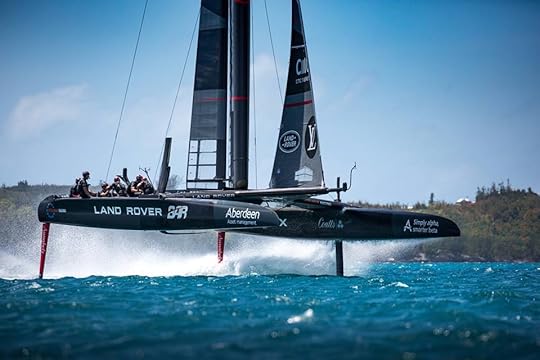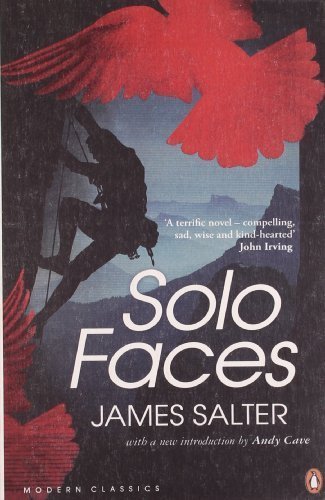Mark Chisnell's Blog, page 2
November 2, 2017
Back to the Spanish Castle

I’ve done a few stories for the guys at the Volvo Ocean Race over the last few years, some leg previews and technical pieces about the boats, but this week was the first time that I’ve returned to the Ten Zulu territory for the Volvo Ocean Race website. The Ten Zulu was a tactical and strategic commentary on the 2008-09 Volvo Ocean Race that was published daily at 10:00UTC, or Ten Zulu in aviation parlance.
It turned out to be quite a marathon, about 1500 words a day of detailed weather and strategic analysis for about 95% of the days they were out on the water. There were also live blogs for the finishes, commentary for the tv on the starts, and travelling to the ports to do the interviews for the book Spanish Castle to White Night.
Now, older, wiser and with two young children and an (albeit part-time) day job, I’m just doing occasional pieces on the key moments of the long legs, and reviews of the short legs -- opening with this strategic review of Leg 1. It’s similar to something I did for B&G (a blog slot now held by Libby Greenhalgh) for the 2014-15 race, but it’s great to be back writing about the race on the main website.
The leg previews on volvooceanrace.com are also my work, and having written these for several editions, I wanted to take a different approach. This time around I made it all about the transitions between the global weather patterns. These transitions dominate the strategy for each leg and I wanted to make this much clearer and upfront – see what you think, here’s the one for Leg 2... I’d love to hear any thoughts over on my Facebook page.
October 17, 2017
A half century for the 100 in Hamble
I can remember the moment when my wife Tina came bouncing into the room to tell me about the 100 in Hamble. It was a simple idea and immediately engaging – take a picture of 100 women, aged nought (i.e. a newborn) to 99 or from one to a hundred and all living in the village of Hamble.
We had a long discussion about whether the pictures should be done in the studio or at another location – perhaps connected to the individual – and eventually decided that consistency and simplicity would be best: black and white portraits shot in the studio to allow the individual faces to stand out against a white background.
And that was as far as we got. We had two children, and that occupied all our energy for several years. And then in 2016 Tina suffered from Encephalitis, a rare condition of brain inflammation that is fatal for one in ten sufferers. One consequence is memory loss and for a few hours when her condition was critical, she didn’t recognise me, wasn’t sure how many children she had, their ages or names.

One year old Molly Lambert got the 100 in Hamble started...
Since that time, she has been fortunate to have a strong recovery, and once she returned to work a few months after getting out of hospital, the idea of the 100 in Hamble resurfaced. A project about memories seemed the perfect way to recover memory, allowing her to reconnect with the village and the people in it. The story of the 100 in Hamble is also the story of Tina’s recovery.
Since then, fifty women have come to the studio, had their picture taken by Tina and spoken to her about their lives and their time in the village. I’ve written up each of those interviews, and posted the pictures to a website that we built for the purpose.
All the women have a story to tell, some ordinary, some exceptional, their individual lives revealing the history of the village through its people.
We’re only half way but it already strikes me that we’re building an unusual record in both words and pictures. The passing of the years is most clearly visible in the images, but the words tell their own story, they lead to so many trains of thought.
Here’s one: I had no idea that medical advice for women after childbirth in the early 1940s was to stay in bed for two weeks. It wasn’t easy to comply when the city was being blitzed by the Luftwaffe and the only relatively safe haven was the bomb shelter in the garden. She had to be carried there by the landlord from the pub opposite, while her Mum carried the baby.
So far, two Hamble women have told us about being bombed out of their homes. It’s easy to forget that this is the lived experience of people still amongst us. We don’t just watch it on the news, happening to other people. It happened here, and it could happen again.
It's the story of one village, but it could be the story of any small community in England, tracing through imagery and words the changes wrought by age, by industrialisation, two world wars and the coming of the information age. A story told through the lives and faces of ordinary women – sisters, mothers, friends, aunts and great-great grandmothers.
It’s been a remarkable journey, particularly because I’ve taken it with my amazing wife, watching her slowly get stronger, recovering memory, concentration, skills and stamina, and coming to terms with what’s happened. These are remarkable photos by a remarkable lady. I can’t wait to get started on the second half.
May 19, 2017
Three years and counting... down
I've now been with Land Rover BAR for over three years, telling the story of the quest to #bringthecuphome. It's been a long journey from the early days in a light industrial unit in Whiteley to the current waterfront perch in Portsmouth -- and of course for most of the team, the Cup village in Bermuda.

There is now a week and loose change before the first race of the 35th America's Cup Qualifiers, and the level of activity has been at this same frenzied pitch for most if not all of those three years. In just a few days we will learn whether or not we closed the gap to the established teams - Oracle Team USA, ETNZ and Artemis - who all came into this with, at the very least a team structure and in some cases a full-blown team and guaranteed funding.
Land Rover BAR came into this world with none of those things, and has built them all from the ground up. It's been a hell of chase to catch up, and we know we're close. The question is whether or not we're close enough to make it a yacht race. The boys can win this thing, if we're racing them. We'll know in a week.
Meanwhile, my job is to keep telling the story, which feels strange, after so many years of being on the front lines with Cup teams. But if there's anything I learned in all those years of navigating, when all hell breaks loose stay focused on your own job, and let other people worry about theirs. So I'm really pleased that in these final weeks, we're putting out some of my favourite stories from these past few years - Insight Profiles of both Giles Scott, and Xabi Fernandez - with more and better to come next week.
And after that I'll be back on the live blog - yup, after ten years, I'll be dusting off the tack-by-tack speed typing skills and returning to my first, post-sailing team Cup job... hope you'll join me this time next week, you can find it on the Land Rover BAR home page.
April 27, 2017
Fake news and the erosion of social capital
Fake new has been a popular topic for a while, and with a General Election now looming in the UK, I’m sure it’s going to become an even more pressing issue. There’s now a failure of consensus on what’s fact; never mind what’s right or wrong.
Don’t expect Facebook and Google to do anything truly useful about it. While it’s good for business, it will go unchecked. In Hitler’s Germany, big business largely went with the flow. Hitler was good for business, so business was good to Hitler. The market will never sort this out -- but just as technology can erode social capital and social trust, it can also build it.
eBay and even Amazon use technology to build trust, Facebook is using technology to destroy it. So let’s support the places that are building trust.
March 16, 2017
Hidden Figures and Seeing Infinity
A cracking review on Slate's Culture Gabfest and a theme of female and racial empowerment was enough for my wife and I to chose Hidden Figures; our first trip to the cinema since our eldest was born three and a half years ago. It was an excellent choice, this is a startlingly good movie, beautifully played by all the leads with a terrific script and couple of moments that would move any right-thinking person to tears.
If there was ever a time and a place when a meritocracy needed no boundaries, it was NASA in the 1960s as the Americans battled to catch up with a Russian lead in the space race. This tale of the slow and difficult rise through NASA’s hierarchy of Dorothy, and her fellow African-American mathematicians and engineers, was testimony to just how deep the racism went, and testimony to how far we have now come.
All of which makes me want to punch Donald Trump and his cronies for the threat he poses to that progress. This is a timely film, so it’s perhaps no surprise – given the propensity of movies to arrive in pairs like Tornado films, Meteorite films... that there’s another celluloid tale of racial empowerment out there. Hidden Figures was so good, that I was downloading The Man Who Knew Infinity andracking it up for Saturday night at the movies almost as soon as I heard about it.
This is a the tale of an Indian mathematician with remarkable intuitive insight to some of the most intractable problems of his day. Set in the early part of the 19th century, there really no shortage of racism or resistance to his arrival at Trinity College and application for a Fellowship there.
Unfortunately, it suffered in comparison to Hidden Figures. Dev Patel and Jeremy Irons do a good job with the material, but the lack of an urgent challenge – like the Russian’s putting an astronaut into space – left the film feeling soggy.
There was plenty of drama in Srinivasa Ramanujan’s life, but the way the film was structured left me wondering just what was at stake in his ideas. The pacing also front-loaded the sadness and tragedy, delivering little respite until the very end. And the motives of several characters – particularly the evil mother – were left unexplained. It’s a great story, but so much more could have been done with it.
February 16, 2017
Solo Faces
I read about James Salter through other reviews of Bill Finnegan’s Barbarian Days, the subject of my last blog. Salter was a highly regarded stylist of his era, but seems to have never achieved quite the same general recognition of some his peers – John Updike, Richard Ford, Jack Kerouac or Norman Mailer.
What interested me is that Salter wrote books about action. He started out as a fighter pilot, flying more than a hundred combat missions over Korea in the early 1950s. His first novel was about these experiences and was subsequently made into a film, The Hunters starring Robert Michum and Robert Wagner.
He resigned from the Air Force to pursue a career as a writer, and much of his subsequent work deals with sport, adventure and physical endeavour. These are themes of much of my own work, and I’m always interested to see such action portrayed.
Salter would appear to have been influenced by the grand old man of literary action, Ernest Hemingway, with short sentences and very little dialogue attribution (sometimes too little to read clearly and easily). It’s not my thing, but it’s very effective when done well.
Solo Faces follows the fate of an American climber, Verne Rand as he departs hippy LA in the sixties for the much less forgiving snow and ice of the Alps. There he drifts, finally attempting a succession of notable climbs in pursuit of…. In pursuit of what?
This seems to be the question that Salter wants to answer – why do men do these things, take these risks? And – while I had issues with the arbitrary and spell-breaking shifts in viewpoint, the occasional racism and the role of women in this tale – Salter does get close to an answer worth reading.

March 24, 2015
Chinese Burn - the Return of Sam Blackett
Sam Blackett looked up from the People's Pilsner that sat in front of her, beads of perspiration now rolling down the glass. Not a drop had passed her lips. It was a shame that she couldn't claim as much for the four or five that had come and gone before it. And she had started the evening with the very best of intentions... a cheap meal, then back to the hotel for an early night. So what the hell was she now doing in the lush, white, art deco interior of the top floor restaurant of Shanghai's Peninsula Hotel? She had needed cheering up. And that would explain the first drink. The rest she could blame on Roger -- at least, she thought that his name was Roger. He'd approached her at the bar with a straight-forward, 'hello, can I buy you a drink?' After spending the last few days wandering around the city with only her own company, she had said yes without even thinking. And here they were, an eighty dollar steak and several bottles of People's Pilsner later.He was staring out across the Huangpu River at the glowing swelter of light from the Bund. The temperature on the restaurant's terrace had dropped to no more than a couple of degrees below the sweat-sodden heat of the day. He turned back to her suddenly. "So, do you wanna go up to my room?" he said, his Midwest accent slightly burred with drink."Not particularly," she replied, and smiled. Roger's shoulders twitched in a snort of laughter that died before it got to his throat. "Well, I guess that's straight-forward," he said, and rose unsteadily to his feet. A moment later a flicker of alarm crossed his face and he lurched towards the railing. "Whoa, steady," said Sam as she moved to grab him. They both peered down from the fourteenth floor. "Don't want to fall from here," she added, watching his face as she did so. Roger harrumphed in a dangerously non-committal way, something dark momentarily crossing his face."Let me give you a hand, I think that last Mai-tai might have been too much," she said, a little crease between her eyebrows."Not sure it was that one in particular..." said Roger, his words starting to openly slur. Typical, thought Sam; as soon as sex was off-the-table he let the alcohol steamroller him. The usual disappointment. He'd been such a good listener while she had explained how she came to be alone in a five star restaurant in Shanghai. An explanation that had somehow involved a fairly detailed description of the relationship-crash she had suffered in India with the man she had -- briefly, admittedly -- thought that she might spend the rest of her life with. And then the Esquire article's advice on which questions to ask had run out; or a natural need to talk had resurfaced. Either way, she had then listened to him slurp his way through half a dozen very expensive cocktails while moaning about the money problems his business was suffering back in Detroit. Roger stumbled the first couple of steps towards the terrace doors, and then lurched to a halt by the next table. She stepped beside him and took a firm grip of his forearm. It looked like she was going to his room after all. "Which floor are you on?" she asked."Four, oh, three. Rooooom four oh, threeee..." he replied. "Shhorryesh..." he added. "It hit when... stood up..." he blinked, very slowly, swaying slightly.I bet it did, she thought, as she guided him unsteadily around the tables. He bumped into several of them, but there was only one other couple left in the terrace bar, and they were very self-absorbed, away in the far corner. She got Roger into the restaurant, more careful to steer him away from contact now, as all the tables had been cleared and freshly laid. She checked her watch. It was almost three am. They made it to the elevators. Roger sank against the wall as she pressed the call button. A moment later, the elevator doors slid silently open and with a huge sigh, he pushed himself back off the wall. They stepped inside, Sam pressed the button for the fourth floor, and again in silence, they began the short descent. Sam just had time to wonder how easy it would be to find a cab to get back to her hotel at this time of night, when they stopped and the doors slid open. The notice on the wall opposite told her which way they needed to go, and she levered Roger out into the corridor. He was now struggling to stand, and she had to get his arm over her shoulders to help support him the fifty yards to his room.
She propped him back against the wall beside the door, and helped him find his keycard, tucked conveniently into the top pocket of his suit jacket. She opened the door and got him up off the wall. He lurched around the corner into the room. Sam felt that she had done her duty and, anxious not to give him the wrong message, she let him go and stayed on the threshold. He stopped a few paces into the room when he realised that she was no longer with him, and turned. He was standing there looking at her, very drunk and faintly disappointed, when the man came at him from behind the still open door. There was no time for any reaction to reach Roger's face before the assailant was on him.
February 27, 2015
Sorry, I’ve Got a Book to Write...
The monthly diary reminder just popped up to tell me that the next time I get a few spare minutes, I really should write a blog. The trouble is that I’ve just about reached a stage in the new novel (Chinese Burn) where it’s got some momentum and a life of its own. I can see the end. So, much as I’d like to give you my thoughts on the first ever Jack Reacher novel (which I'm about half way through)… it’ll have to wait till I’ve finished my own.
January 20, 2015
Homeland – Season Four Finale
I posted that the final episode was botched together after they learned that they had got the money for Season 5… and perhaps I should explain that a little more with some wild and completely unsubstantiated speculation...
So let’s imagine it’s early in the first US transmission, and the writing team are meeting to agree the trajectory of the final episodes of Season Four which still have to be shot. The ratings aren’t going particularly well, and it looks like they won’t get the money for Season Five. So they say to hell with it, let’s finish it with a bang…
Let’s kill Saul off before he can get out of Pakistan. Then Quinn kills Haqqani with a pipe bomb attack, and goes down in a hail of bullets. Carrie watches him die helplessly, goes home to mourn him and her father both, but takes on the role of mother to her child after leaving the CIA.
Brilliant! Action packed to the finale, all tied up in a tragic-but-happy ending that makes complete sense with what’s gone before, with Carrie finally out of the self-destructive job. The End.
Then they start showing the episodes with the attack on the embassy, and suddenly there’s a huge surge in ratings. The cash tills ring and the studio execs demand more… suddenly the money is on the table for Season Five. Uh-oh, but everybody dies, or retires! Quick! Rewrite! Reshoot!
So they fudge the last episode and the final couple of minutes of the penultimate one with completely new material. Saul doesn’t die. Quinn is persuaded by Carrie not to blow up Haqqani (really?), and lo and behold – deux ex machina grinding audibly in the background – it’s all ok, the CIA have it covered after all! Dar Adal is in the car with Haqqani!
Implausible. Unlikely. Improbable… and lots of other synonyms.
Then they have to shoot a new final episode, back in the US with none of the locations they have used for the rest of the season. So they come up with the ridiculous mechanic of the mother turning up.
“Good drama tends to let characterisation guide the plot, so to have such a significant figure turn up merely to help Carrie learn a couple of life lessons was very weak indeed,” said the Guardian. No s##t.
I rest my case. And on to the Game of Thrones, which I got for Christmas…
December 12, 2014
Never Go Back
I’ve just finished Never Go Back, the latest but one of the Jack Reacher series from Lee Child, one of the top thriller writers of this generation. There are now 19 of these books, one a year from when he started. While Child maintains a very even level of quality in the books that I have read, I have to say that this wasn’t the strongest ending I’ve ever seen.
In fact, it was pretty feeble – I’m not going to spoil it for you, but it led me to start thinking… what is it about writers that people keep going back to them even when they have just delivered a bad book? Not that Never Go Back is a bad book, it’s just a poor ending – but I’m already cue-ing up the new one, regardless of my disappointment. Never Go Back is prophetic, I will, even if I shouldn't...
It’s simply not true to say that you are only as good as your last book.
I think the willingness to stay with an author has something to do with the amount of time we invest in a book. If a movie’s rubbish, it’s a couple of hours you aren’t going to get back. If a book’s rubbish, or has a disappointing ending, it’s the best part of a day that we’ve wasted.
Now – if we take into account that the vast majority of readers only read a couple of books a year – we start to see why they are so conservative. If you were only going to have two cups of coffee in 2015, you’d make damn sure that they were good ones.
It’s not surprising that breaking down this conservativeness in book selection is nigh on impossible. The only chink is to appeal to the much smaller proportion of people who read a lot – they are the only ones who will take a risk on the new. And to do that, I’m starting to think that you really have to write for a niche. And then market hard to that niche. Everyone else just wants to read the same stuff as everyone else. Bad endings or not.



